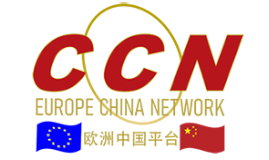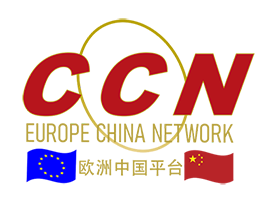The Technical Chamber of Greece (TEE-TCG) was established in 1923. It is a public legal entity, with elected administration. Its headquarters are in Athens and has branches in 17 geographical regions.
It aims at developing Science and Technology in sectors related to the disciplines of its members, for the economic, social, and cultural development of the country, in accordance with the principles of sustainability and environmental protection.
The Technical Chamber of Greece is the official adviser of the State. In particular it:
Studies, on its own initiative or upon request, by itself or in coordination with other scientific institutions, any technical, economic or development matter that is of interest to society. It also expresses official opinion on legislative issues on these matters.
Advises on issues within its scope, upon request by the competent authorities, or other institutions of the public sector or unions.
Surveys the activities of its members as well as related construction and other industries, formulating statistical reports and information for the benefit of the state and other institutions.
Assists in the proper formation and implementation of development projects and the utilisation of natural resources. For the improvement of the quality of life and the protection of the environment, the TCG carries out research and studies as well as guidelines for standards, regulations and contracts.
Contributes to making programmes on technical education, to developing local research and technology, and to maximising the potential of its members, in accordance with the development needs of the country.
Informs the public by issuing announcements, publications, etc., on any subject within its scope, in order to render same more easily understood.
Participates in International Organisations, in Unions and Federations of Engineers, develops relations with similar organisations of other countries and organises conferences, exhibitions and other events to promote its scope.
Carries out surveys, appraisals, valuations, arbitration on all matters related to the planning and construction of technical works.
Professional title
The intervention (not compulsory) of the architect is in general, limited to the establishment of the project only. The central figure of the construction operation is the engineer.
| Protection of the title of architect | Yes The title is protected on the condition that the architect is qualified and accredited by the Technical Chamber |
| Protection of the function of architects | No |
| Professional title | Architect or Architect-Engineer There are 6 schools of Architecture. Depending on the school, the professional title change. This depends on the courses offered at each school. |
| Mandatory Registration | Yes |
| If yes, Where ? | Chambre Technique de Grèce (CTG) |
| Competent authority | Chambre Technique de Grèce (CTG) |
Access to the profession: How to become an architect in this country ?
Show the legend
• Institutes of architecture (Universities):
– Entrance examination
– Academic training in 5 years given by several universities (Students are opposed to the Bologna system for fear of arrival of un-funded Master’s degrees)
– Degree in Architecture.
– After a period of 3 or 4 months (during which no professional experience is demanded) one can subject oneself to the professional examination (not very selective) before a jury selected by the Technical Chamber.
– Compulsory Registration with CTG.
– Continued training: Not compulsory
• Technical Universities:
– Academic training of 4 years with 3.5 years of studies and 6 months of internship
– Academic qualification limited to buildings of a maximum of two stories.
Qualification limited to buildings of a maximum of two stories
• Possible supplement to the academic training:
– Complementary Master’s degree of 2 years
– Doctorate of 3 years
Note:
Certain foreign “colleges” have opened branches in Greece. They still have no right to use the term university and they didn’t give architectural degrees that can provide professional rights
Traineeship
| Additional compulsory practical training- internship | 2 years / 6 months |
| Requirement for undertaking a period of traineeship | |
| Period of traineeship supervised (overseen) By who ? | |
| Practical training period Where ? To which conditions | |
| Number of hours per month required | |
| Compulsory Professional examination | Yes |
| Complementary professional education | No |
| Remuneration of the Traineeship | |
| Trainee accompanied | |
| Specific supplementary courses organised | |
| Model form of contract available | |
| Traineeship and practical experience undertaken abroad taken into account | |
| Evaluation of the Traineeship | |
| Evaluation method used |
Liability and insurance
10 years (counted from acceptance which takes place at the conclusion of a maintenance period of 15 months or 3 years).
Continuous Professional Development
| Does a system of CPD for architects exists in your country ? | |
| If yes: – Is it compulsory ? – Is it encouraged ? – Is it free ? | Free |
| If it is compulsory, is it required by law, or by a Code of Conduct ? | Not compulsory |
| If it is regulated, who regulates the system: a professional body, a governmental body, a combination of the two ? | |
| Is it organised ? | |
| Who provides the courses: | |
| What level of training is provided: | |
| Are certain subjects mandatory ? | |
| What types of activities or provisions are accepted : | |
| Do you have any evaluation criteria for the CPD material ? | |
| Who recognize (accredits) these trainings : | |
| Development of the trainings : A. Estimated number of courses / year B. Estimated number of participants / year C. Estimated lesson hours / year | |
| Level of requirements for the architects : | |
| Is this required level validated or checked and how: A. Not requested, B. Self-assessment of value, C. Attendance tracking, D. Self-assessment using self-test, E. By regular checks, F. Examination, G. Thesis, H. Others means (e.g. electronic monitoring) ? | |
| Is training (provision) delivered abroad accepted ? | |
| What kind of sanction is applied for the non-compliance with CPD obligation: A. None, B. Reprimand, C. Expulsion from the register, D. Other ? | |
| Do you have a database of the content of your CPD Programme ? |
Technical Chamber of Greece (TEE-TCG)
European Affairs – 4, Nikis str – GR-10248 Athens
Phone: + 302 10 322 00 76
Fax: + 302 10 322 03 19
Email: tcgeudep(at)tee(dot)gr
Website: http://web.tee.gr
Greek Association of Architects (SADAS-PEA)
15 Vrisakiou&Kladou – GR-10555 Athens
Phone: + 302 10 321 51 46
Fax: + 302 10 321 51 47
Email: sadas-pea(at)tee(dot)gr
Website: http://www.sadas-pea.gr






















